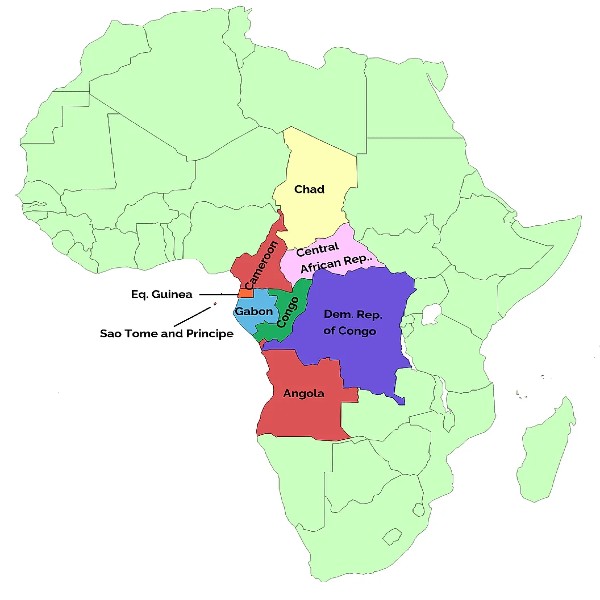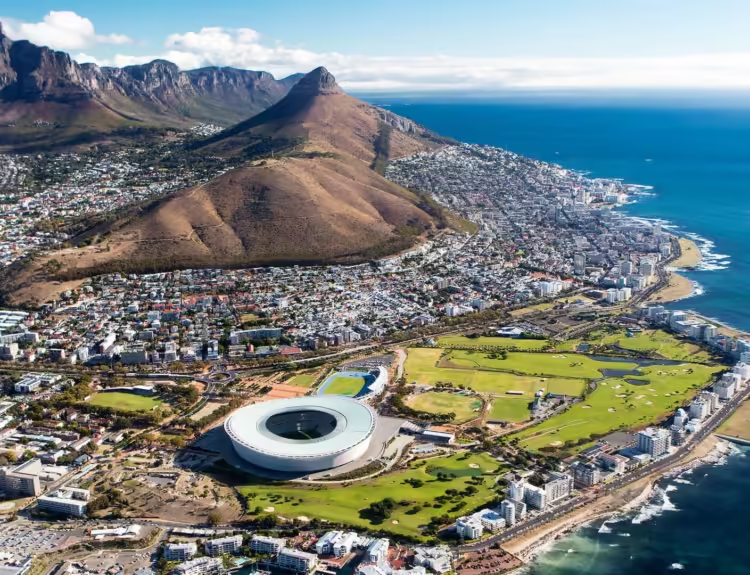Central Africa, a region rich in natural resources and cultural diversity, has long grappled with economic challenges that have hindered its development potential.
Despite its vast potential, the Central Africa economic block finds itself trailing behind other regions in terms of economic activity.
In this comprehensive analysis, we delve into the underlying reasons behind this disparity, explore the policy reforms needed to encourage investments, and highlight sectors ripe for foreign capital infusion.
Contents
Understanding the economic landscape
Central Africa comprises countries such as Cameroon, Chad, the Central African Republic, the Republic of the Congo, Equatorial Guinea, and Gabon.
While endowed with abundant natural resources including oil, minerals, and timber, the region has struggled to translate these resources into sustainable economic development.
Factors such as infrastructure deficits, political instability, governance challenges, and over-reliance on extractive industries have contributed to the region’s economic stagnation.
Infrastructure deficits
One of the most pressing issues hindering economic activity in Central Africa is the inadequate state of infrastructure.
Poor transportation networks, inadequate energy supply, and underdeveloped telecommunications systems have significantly increased the costs of doing business in the region.
Without robust infrastructure, businesses face challenges in accessing markets, transporting goods, and delivering services efficiently.
Political instability and governance challenges
Political instability and governance issues have been persistent challenges in certain Central African countries.
Corruption, lack of transparency, and weak institutions have eroded investor confidence and deterred foreign investments.
Addressing these governance challenges is crucial to creating a conducive environment for investment and fostering economic growth.
Strengthening the rule of law, promoting transparency, and combating corruption are essential steps towards restoring investor confidence in the region.


Diversification of the economy
Central Africa’s over-reliance on natural resources, while a source of wealth, has also left the region vulnerable to commodity price fluctuations.
Economic diversification is essential to reducing this vulnerability and promoting sustainable growth.
Sectors such as agriculture, manufacturing, tourism, and technology offer promising opportunities for diversification and foreign investment.
However, significant policy reforms and investments are needed to unlock the full potential of these sectors.
Policy reforms to encourage investments
At the policy level, there is a growing recognition of the need for comprehensive reforms to stimulate economic activity in Central Africa.
These reforms may include:
• Investing in infrastructure development to improve connectivity and reduce the costs of doing business.
• Strengthening governance and regulatory frameworks to enhance transparency and investor confidence.
• Promoting access to finance for businesses, particularly small and medium-sized enterprises (SMEs), to stimulate entrepreneurship and economic growth.
• Encouraging economic diversification through targeted policies and incentives to support non-resource sectors.
Opportunities for foreign investment
Central Africa offers opportunities for foreign investors across various sectors:
• Infrastructure development: Investing in infrastructure projects such as transportation, energy, and telecommunications through public-private partnerships (PPPs).
• Agribusiness: Leveraging the region’s agricultural potential by investing in farming, processing, and distribution of agricultural products.
• Renewable energy: Exploring opportunities in renewable energy projects, including solar, wind, and hydropower, to address the region’s energy needs sustainably.
• Manufacturing: Supporting the growth of manufacturing industries such as textiles, food processing, and automotive assembly to promote industrialization and economic diversification.
• Technology and innovation: Investing in technology and innovation ecosystems to drive digital transformation and unlock new opportunities in sectors such as fintech, e-commerce, and digital services.
Central Africa stands at an economic crossroad, but with proper policies and good governance, the region could drive Africa’s growth.
While challenges abound, the region holds immense potential for growth and development.
By addressing infrastructure deficits, governance challenges, and promoting economic diversification, Central Africa can attract foreign investment, foster sustainable growth, and improve the livelihoods of its people.
Through concerted efforts at the policy level and strategic investments in key sectors, the region can embark on a path towards economic prosperity.






